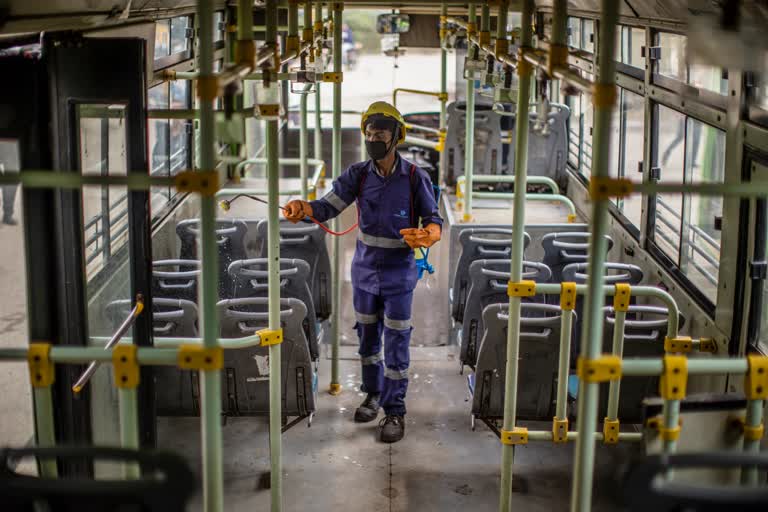New Delhi:The coronavirus shock is a severe hit to the global economy, tipping it into a recession. This is a shock where the antidote is also an economic killer – the pandemic is best managed through pre-emptive lockdowns.
India has just launched into this large-scale, asking its 1.3 billion people to stay indoors for protection and containment of the virus’ spread. It follows restrictions on airlines, travel, recreation, and many other activities and services earlier in the month.
The shock comes at a particularly bad time: the economy was already slowing for last three years, its financial system is weak and vulnerable, and all segments, including government, private non-financial and household sectors are debt-stressed.
The economic costs of large-scale shutdowns of businesses are colossal and unimaginable for now. But its reasonable to guess these are likely to be temporary, even though deep, if the situation is controlled soon.
Chances of V-shape bounce back from a recession that is state-induced to fight a deadly disease would be high.
But if the pandemic duration is stretched out, and along with that most activities and services, the economic wreckage could be massive and some of the losses could turn permanent.
That this comes on top of the NSSO survey reporting that unemployment in India was at a 45-year high two years ago, though not accepted officially, worsens matters.
Shutdowns of plants, businesses and numerous services, coupled with a fall in consumer demand for many of these, are a double knock to employment too.
Unfortunately, India is severely vulnerable on this count: around two-fifths of its employment is informal; a sizeable chunk of this works without written contracts (e.g. domestic workers, daily wage labourers, etc); the self-employed include many providers of low-productivity services (e.g. hawkers, retail, repair and personal services); while services account for 54% of the country’s aggregate output.
The impact of lockdowns upon such jobs is humongous, especially as large shares of workers depend upon daily wages and cash flows; even where employment are contractual, as a sizeable share of jobs are with small and medium businesses that are inherently weak.
Read more:Coronavirus can spread through currency notes
Fighting COVID-19 thus raises the spectre of severe, adverse employment effects.
In the immediate context, it is the incomes of daily wagers and earners that are hit.
